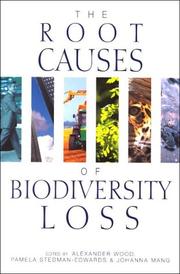| Listing 1 - 6 of 6 |
Sort by
|

ISBN: 023150652X 9780231506526 9780231131780 023113178X 9780231131797 0231131798 Year: 2004 Publisher: New York
Abstract | Keywords | Export | Availability | Bookmark
 Loading...
Loading...Choose an application
- Reference Manager
- EndNote
- RefWorks (Direct export to RefWorks)
Author of "Kubla Khan" and the epic "The Rime of the Ancient Mariner," Samuel Taylor Coleridge is remembered principally for his contributions as a romantic poet. This innovative reconsideration of Coleridge's thought and career not only demonstrates his importance as a philosopher but also recovers romanticism as both an aesthetic and a political movement. Pamela Edwards radically departs from classic theories of Coleridge's development and reads his writing within the framework of a constantly shifting political and social landscape. Drawing on the ideology, rhetoric, and institutional theory at the turn of the late British Enlightenment, Edwards unearths the fundamental continuities in Coleridge's writing during the revolutionary period of 1794 to 1834, paying particular attention to the rhetoric of Coleridge's pamphlet and miscellaneous writings, the journalism of the Napoleonic years, his philosophical and ultimately political treatises within the contexts of his notebooks and letters, and his readings and intellectual friendships. What emerges is a clearer understanding of Coleridge's political philosophy and his contributions to the origins and ideology of British Liberalism. Coleridge's interest in history, nature, and law as inherently interconnected projects producing an ideal or scientific reading of society reveals a developed progressive social and cultural state theory anchored in individual conscience, moral autonomy, and a civic and participatory human agency. If the Statesman could understand and finally master this scientific view of the world, he would be able not only to adjust political and social institutions to comprehend the historical contingencies of the moment but to see through the problem of the moment to the dynamic of change itself.
Political science --- History --- Coleridge, Samuel Taylor, --- Coleridge, S. T. --- Kolʹridzh, Samuil, --- Кольридж, Самуил, --- Kolʹridzh, Samuil Teĭlor, --- Кольридж, Самуил Тейлор, --- Kūlīridzh, Ṣāmwīl Tīlūr, --- קולרידג׳, סמיואל טיילור --- Kūlīridj, Ṣāmwīl Tīlūr, --- كولردج، صمويل تيلور, --- קאָלרידש, ס. ט., --- Political and social views. --- Knowledge --- Natural history. --- History. --- Law.
Digital
ISBN: 9780231506526 9780231131780 Year: 2004 Publisher: New York, N.Y. Columbia University Press
Abstract | Keywords | Export | Availability | Bookmark
 Loading...
Loading...Choose an application
- Reference Manager
- EndNote
- RefWorks (Direct export to RefWorks)

ISBN: 1853836990 Year: 2000 Publisher: Londres : Earthscan,
Abstract | Keywords | Export | Availability | Bookmark
 Loading...
Loading...Choose an application
- Reference Manager
- EndNote
- RefWorks (Direct export to RefWorks)
The world is losing species and biodiversity at an unprecedented rate. The causes go deep and the losses are driven by a complex array of social, economic, political and biological factors at different levels. Immediate causes such as over-harvesting, pollution and habitat change have been well studied, but the socioeconomic factors driving people to degrade their environment are less well understood. This book examines the underlying causes. It provides analyses of a range of case studies from Brazil, Cameroon, China, Danube River Basin, India, Mexico, Pakistan, Philippines, Tanzania and Vietnam, and integrates them into a new and interdisciplinary framework for understanding what is happening. From these results, the editors are able to derive policy conclusions and recommendations for operational and institutional approaches to address the root causes and reverse the current trends. It makes a contribution to the understanding of all those - from ecologists and conservationists to economists and policy makers - working on one of the major challenges we face.
Ressource naturelle --- Natural resources --- Biodiversité --- Biodiversity --- Dégradation de l'environnement --- Environmental degradation --- Épuisement des ressources --- Resource depletion --- Environnement socioéconomique --- socioeconomic environment --- Impact sur l'environnement --- Environmental impact --- Étude de cas --- case studies --- Biodiversity. --- Extinction (Biology) --- Environmental degradation. --- Cameroon --- China --- Danube River --- India --- Mexico --- Pakistan --- Philippines --- République-Unie de Tanzanie --- United Republic of Tanzania --- Viet Nam --- Nature --- Effect of human beings on. --- CON Bioconservation --- Brazil = Brasil --- Cameroun = Cameroon --- Danube Basin --- Tanzania = Tanzanie ( = Tanganyika = German East Africa = British East Africa (after 1918) ) --- Vietnam --- bioconservation --- biodiversity --- Extinction (Biology). --- Anthropogenic effects on nature --- Ecological footprint --- Human beings --- Anthropogenic soils --- Human ecology --- Animals --- Extirpation (Biology) --- Biology --- Extinct animals --- Degradation, Environmental --- Destruction, Environmental --- Deterioration, Environmental --- Environmental destruction --- Environmental deterioration --- Natural disasters --- Environmental quality --- Biological diversification --- Biological diversity --- Biotic diversity --- Diversification, Biological --- Diversity, Biological --- Biocomplexity --- Ecological heterogeneity --- Numbers of species --- Effect of human beings on --- Extinction --- Extirpation
Book
Year: 1999 Publisher: Radnor, PA : United States Department of Agriculture, Forest Service, Northeastern Research Station,
Abstract | Keywords | Export | Availability | Bookmark
 Loading...
Loading...Choose an application
- Reference Manager
- EndNote
- RefWorks (Direct export to RefWorks)
Rivers --- Biogeochemistry --- Cations --- Anions --- Measurement.
Book
Year: 2011 Publisher: Newtown Square, PA : U.S. Dept. of Agriculture, Forest Service, Northern Research Station,
Abstract | Keywords | Export | Availability | Bookmark
 Loading...
Loading...Choose an application
- Reference Manager
- EndNote
- RefWorks (Direct export to RefWorks)
Book
Year: 2018 Publisher: Newtown Square, PA : United States Department of Agriculture, Forest Service, Northern Research Station,
Abstract | Keywords | Export | Availability | Bookmark
 Loading...
Loading...Choose an application
- Reference Manager
- EndNote
- RefWorks (Direct export to RefWorks)
Endemic plants --- Revegetation --- Natural gas pipelines --- Environmental aspects
| Listing 1 - 6 of 6 |
Sort by
|

 Search
Search Feedback
Feedback About UniCat
About UniCat  Help
Help News
News